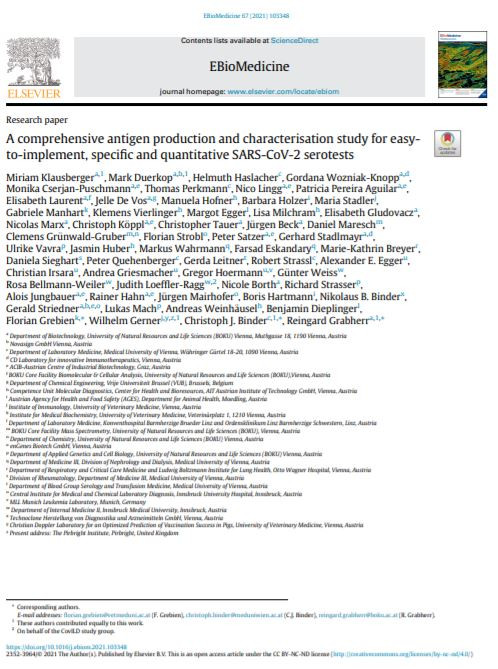Success story
Project with BBMRI.at partner MedUni Wien Biobank involvement awarded with the ‘Houska Preis 2021′: A success story of how a biobank can support researchers to improve healthcare
The MedUni Vienna Biobank was a key cooperation partner in a joint project between several Austrian universities and an industrial partner which led to the development of two CE-certified quantitative SARS-CoV-2 antibody tests.
In a joint project between several Austrian universities and an industrial partner, SARS-CoV-2 specific antigens (nucleocapsid and spike) were produced after screening with different animal, plant and bacterial vectors. The antigens were subsequently brought to market as two quantitative SARS-CoV-2 antibody tests (ELISA). The project was awarded the Audience Award of the Houska Prize, Austria’s largest private prize for applied research.
The MedUni Vienna Biobank was a key cooperation partner, providing essential samples for the diagnostic evaluation of the test systems. For the validation of an antibody test, it is not only antibody-positive samples of infected persons or vaccinees that are important for investigating the sensitivity of the test, but also negative samples in order to be able to estimate the specificity, i.e. the occurrence of false positive test results. These should come from individuals who had never contact with the virus before. In the context of a pandemic, however, contact cannot be ruled out with certainty – biobanks therefore represent an essential resource, harbouring abundant pre-pandemic samples in which the presence of SARS-CoV-2-specific antibodies is impossible, since the virus did not circulate at the time of collection. This example also illustrates the advantage of broad use consent for biobank samples: The 1,126 negative samples were collected as different, in part, disease-specific collectives. A donor’s consent to use the samples in a broad research setting allows for rapid response to acute public health problems, such as a global pandemic.


